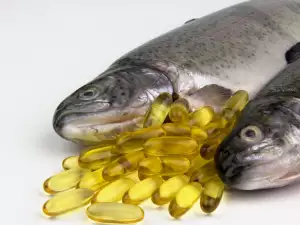We have all heard how good fish consumption is and it is imperative that we eat fish at least once a week. It is a well-known fact that fish is rich in protein, selenium, vitamins A, D, E and B12, omega 3 fatty acids, calcium, phosphorus, iodine and other important substances.
In recent years, however, there has been more and more talk about the high presence of mercury in a large part of fish species. The most dangerous are shark, mackerel, tuna, eel and pangasius.
Where does the mercury in the fish body come from?
In principle, mercury is found in the environment, but in its natural form it does not pose a danger to the human body. The big problem comes from the use of large amounts of mercury by humans, which is then released into the environment and of course water bodies are also affected. In this case, the toxic substance can be absorbed by the aquatic inhabitants and later reach the human body through the consumption of fish.

Usually mercury is in larger amounts in the body of larger sea creatures. The arithmetic is simple: the tiny sea creatures feed on mercury-containing plants. On the other hand, the big fish eat the smaller ones and in this way a large amount of the dangerous substance accumulates in their body. This is also the reason why fish like shark or tuna have more mercury in their body than small fish.
After consumption of mercury-contaminated fish, the dangerous substance accumulates in the human body. It is not desirable that these types of marine life be consumed by pregnant women. This does not mean at all that pregnant women should not eat fish. They just need to choose more carefully the seafood they eat.
It is important to say that fish can be consumed in moderation, because the benefits of eating it are greater than the harm.
Freshwater fish is considered safer, which, however, must be caught in a clean and uncontaminated water pool with heavy metals. In addition, it is preferable to obtain the fish from a natural water source and not from a hatchery, where it is fed with mixtures and given various additives and substances.




















Comments